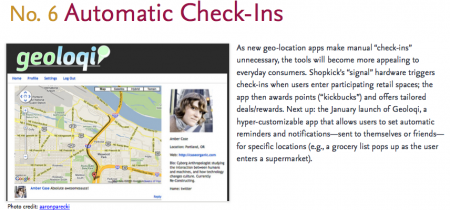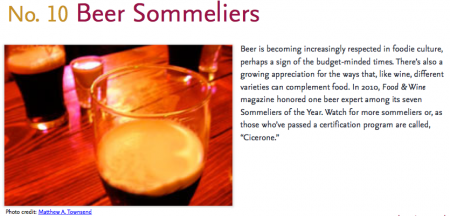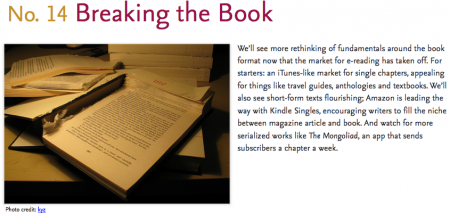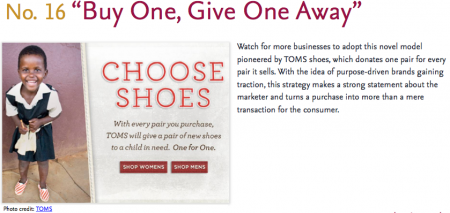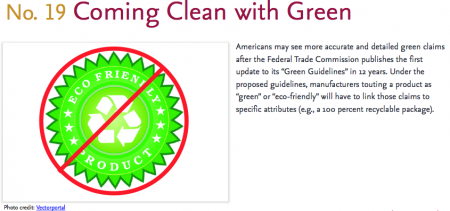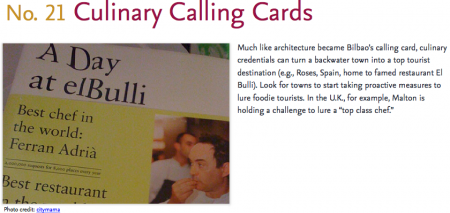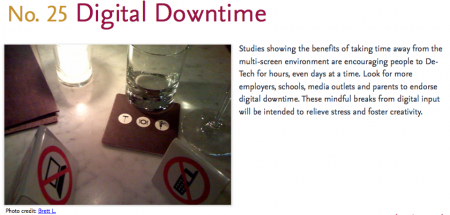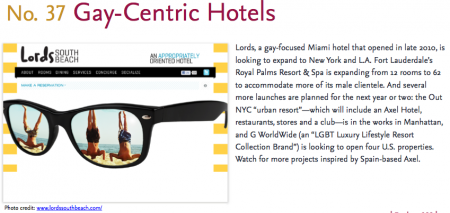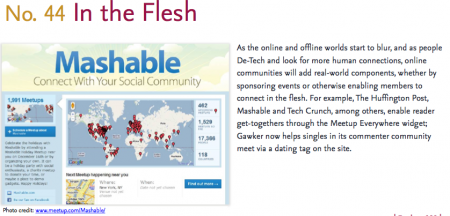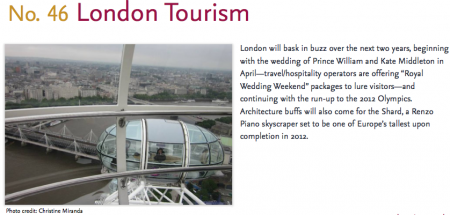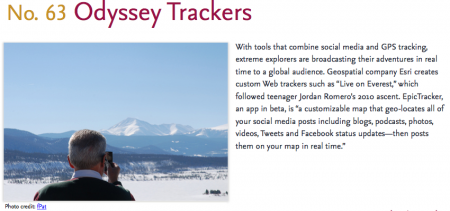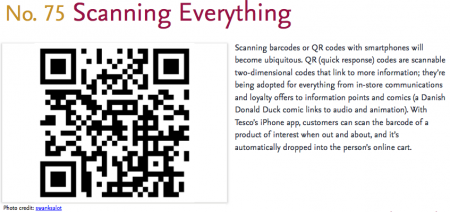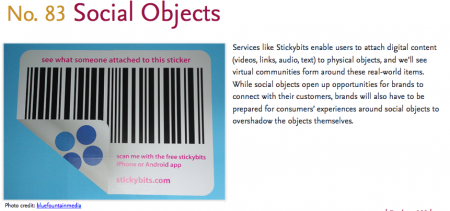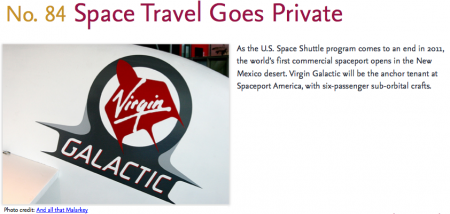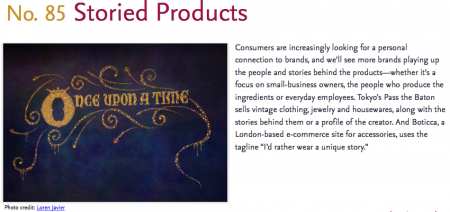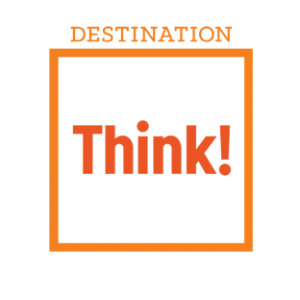» Next Entries
Category
leadership
-
leadership, Management, Marketing, social media, Travel & Tourism
Tapping into influencers passion
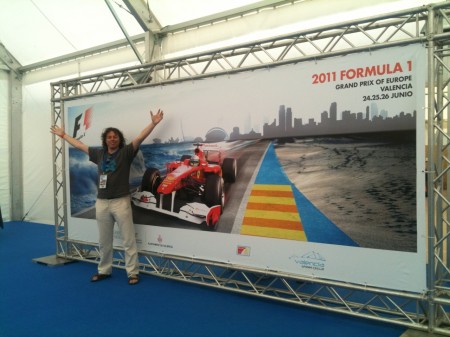
Most people don’t know I’m a huge F1 (Formula One) fan. I watch every qualifying session and every race, ever time. I’m depressed in the off-season.
It started when I was a teenager. On Sundays, me and my Mom would always watch the races together. I don’t remember how it started but it was our thing and it has always stayed with me. Even after I left Europe and moved to Canada where F1 fans are few and far between.
I frequently get asked to speak about tourism marketing at places around the world. It’s very flattering that people are interested in what I think and have to say. In the tourism marketing community, I suppose I’m some sort of influencer. Unfortunately I can’t make it everywhere. I try, but I have to pick and choose.
I met Joantxo Llantada from the Valencia Region Tourist Board at the ENTER conference this year. I presented a case study about our marketing for the 2010 games at Tourism BC and he presented a fascinating case study about his F1 blogtrip. So I told him I was an F1 fan.
A few months later he sent me this tweet.

The decision was very, very, very easy. Come to Valencia to do a presentation and visit the F1 race? Uh… yeah!
Connect with somebody’s passion and they’re easily convinced. Joantxo uses the F1 to bring influencers together for a conference and a blog trip. For 4 days we explored the (awesome) city of Valencia, had great food and inspiring conversations. An awesome mix of the biggest bloggers, journalists, social media marketers and digital professionals. From young to old and from all over.
It was educational and inspirational. More about that in the next few days.
-
leadership, Marketing, Travel & Tourism
Highlights from Things to watch in 2011 (by JWT)
Interesting list of things to watch in 2011 from JWT. Many trends relate to travel, tourism and hospitality. Here’s my highlights to pay attention to and why.
People might be sceptical about Foursquare, Gowalla or Facebook Places. But checkin-in services aren’t going away and services will become more intelligent, more meaningful and more relevant to people as innovators finds the sweet spot. And it’s a natural for travel and tourism.
Microbreweries have been hot in BC for a while and new restaurants and pubs offer selections of beers from around the world. This niche is turning mainstream and offering a great selection of beers might just be a great differentiator for your restaurant or pub.
Most DMO’s are still producing paper guides (don’t get me started). Many offer the option to download an electronic version to reduce production and shipping costs while minimizing environmental impact. Most DMO’s create an exact (PDF-like) copy of the paper version. But that’s missing the point. Offering an electronic format requires re-thinking the existing model for this kind of content delivery.
People are more socially and environmentally aware and the choices they make as consumers are starting to reflect this more and more. Brands are clueing in. Pepsi’s refresh project is a great example. The travel and tourism industry needs to become a lot more mindful of this. Voluntourism is one way of doing this. Tribes wanted is a good example and so is Abraham’s Path.
The next economic driver might very well be the green economy as innovators across the world are looking for solutions to global warming. People’s expectations for products and services will change. If not careful, traveling could become a frowned upon activity because of its environmental impact. It doesn’t have to be this way though but the travel and tourism industry needs to take this trend seriously. It takes leadership. Resort town Whistler for example is leading the local industry in realizing their sustainability vision.
Food is a very important part of a tourism experience. People talk about the weather, the food and how friendly the people were when they come home. A celebrity chef restaurant can be a reason to visit a destination.
This is the stuff I have nightmares about but some people’s definition of ‘getting away from it all’ is to disconnected all devices. As a tourism operator, you need to find your niche and this could very well be yours.
Another example of finding your niche.
As the internet and social network allow people to connect with people in passionate communities, they want to meet in person. The opportunity lies tourism and hospitality businesses is to find relevant communities and offer them the chance to connect in person, from foursquare swarm badge parties to geek cruises.
Needs no explanation.
There are a multitude of people traveling the globe and broadcasting their adventures to their communities. This is the new travel media. I remember suggesting inviting “Where the hell is Matt” to create a video in every community in BC. Never happened unfortunately and I still can’t believe no DMO ever has.
One of the break-through trends of 2010 and a hot topic during DMAI even though it’s old news in Japan. A QR code is in essence nothing more than an easy way to direct a user to a URL/app. But directing people to information is just the beginning. We need more imagination, like these Buddhist munks, Adidas or CASA.
This one is a bit more abstract. It can refer to physical objects as the center of a social interaction. A hotel review on Tripadvisor for example. It can also used as a virtual object used socially in an online environment. Sending someone a virtual gift on Facebook for example. It’s easy to do and the thought that matters, and that’s why they work. <plug>By the way, Think! licences a Facebook gift app for DMO’s and tourism businesses</plug>.
Will there be a galaxy DMO?
Tourism is all about stories. Tourism operators don’t sell a product, they sell a story, a memory. And a story needs a plot, a beginning, a middle and an end. You can design the story and the process is called service design. Companies like Disney go as far as creating a detailed backstory for everything in their themeparks, creating the perfect story for a guest to join in. What’s the story your guests joins?
-
leadership, Management
From Terrorism to Tourism
William Ury is a professional negotiator has been involved in resolving some of the toughest conflicts.
In his TEDx presentation he poses a solution to the Middle East conflict. Ury and his team created Abraham’s Path, a route of walking and cultural tourism which follows the footsteps of Abraham or Ibrahim through the Middle East.
By retracing this journey, the Masar (‘Path’ in Arabic) provides a place of meeting and connection for people of all faiths and cultures, inviting us to remember our common origins, to respect our cultural differences, and to recognize our shared humanity. The Masar also serves as a catalyst for sustainable tourism and economic development; a platform for the energy and idealism of young people; and a focus for positive media highlighting the rich culture and hospitable people of the Middle East.Never though tourism could be the solution for a problem as big as that.
-
leadership, Management
Must see presentations #5: Itay Talgam: Lead like the great conductors
Don’t tell people how to do things, tell them what to do and let them surprise you with their results.
— George S. PattonI believe that great leaders are passionate people who set a vision and inspire teams and individuals who’ve been given the space to make the vision a reality.
Itay Talgam delivered a great presentation at TED where he uses different styles of symphony conductors to deliver a powerful message about how to lead talented individuals. Very insightful.
-
leadership, Management, Marketing, social media, Travel & Tourism
To be Authentic
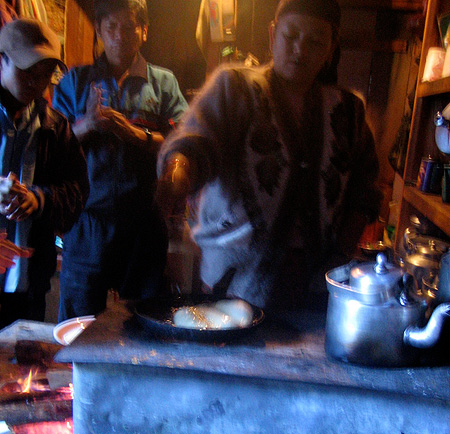
The best meal I ever had wasn’t at a fancy restaurant, made by a celebrity chef, with an award winning wine. It was at a small B&B in Chame, Nepal. Because it was freezing cold we huddled around the kitchen fire where dinner was being made.
The whole family helped out. Kids were preparing veggies, the husband was making the dough for bread and mom was in charge of everything and everybody. Friends and family came and went.
That Dal Bhat was the best meal I’ve ever had. Because it was an authentic experience.
The word authentic keeps popping up lately. Tourists increasingly want authentic experiences. In social media, you need to be authentic to be successful. To be authentic is to be real and genuine.
Simon Sinek, who writes fantastic stuff about leadership by the way, talks about imperfection and authenticity in this blog post.
Perfection comes out of molds or off assembly lines. Things made by nature or by hand are imperfect. It is their flaws that make these objects unlike any other of their kind. It is their imperfections that make these things unique and beautiful.That’s why so much marketing is junk. People try to make it too perfect and as a result, the message isn’t authentic anymore. It’s like most marketing comes from the same assembly line. Killed by process, approvals and egos.
Imperfection is not always a bad thing, when it creates authenticity. Keep this in mind for your business. Don’t mold it like everybody else’s (but don’t use your bathroom as a place for imperfection). Give staff some room to be themselves so they don’t sound like robots and give them the ability to think on their feet and give customers personalized attention.
And in social media, authenticity is a must. Don’t always try to craft the perfect message. Be yourself and try to have meaningful relationships with your network. Just don’t be stupid. And when you make a mistake, apologize.
I’ll finish by quoting Simon one more time.
Great leaders don’t try to be perfect, they try to be themselves. And that’s what makes them great. -
leadership, Management
Must see lectures #1: Bran Ferren – Leadership
Bran Ferren is the CEO of Applied Minds and the former president of Walt Disney Imagineering, Disney’s R&D division. This lecture is almost 2 hours long and it is very good. While watching this lecture, I put together another piece of the puzzle that reveals the process and methodology we use with Tourism BC’s online team and Rob Munro’s team at technology partner T4G.
My interpretation of Bran’s argument is that there are two types of people; the requirement thinkers and the big idea thinkers. Requirement thinkers are driven by process, documentation and figuring it all out before you start. Big idea thinkers are visionaries, innovators and driven to make things better. To achieve excellence, you need diverse talent and constructive tension to generate a vision, and an aligned team who’re great at implementing using a requirement process but are comfortable with continued evolution. Sounds a lot like our team.
I also like his statement that “consensus based management is the most evil process for destroying innovation I can think off“. I don’t disagree. Although desirable, it often leads to mediocrity or an insane waste of time.
The part I’m referring to runs from minute 24:30 til minute 46:00. There’s more great stuff, you have to watch it.
In another article I found Bran said: “Big-idea companies are run by passionate maniacs who make everybody’s life miserable until they get what they want.”
Guilty as charged. Sort-off.
» Next Entries
